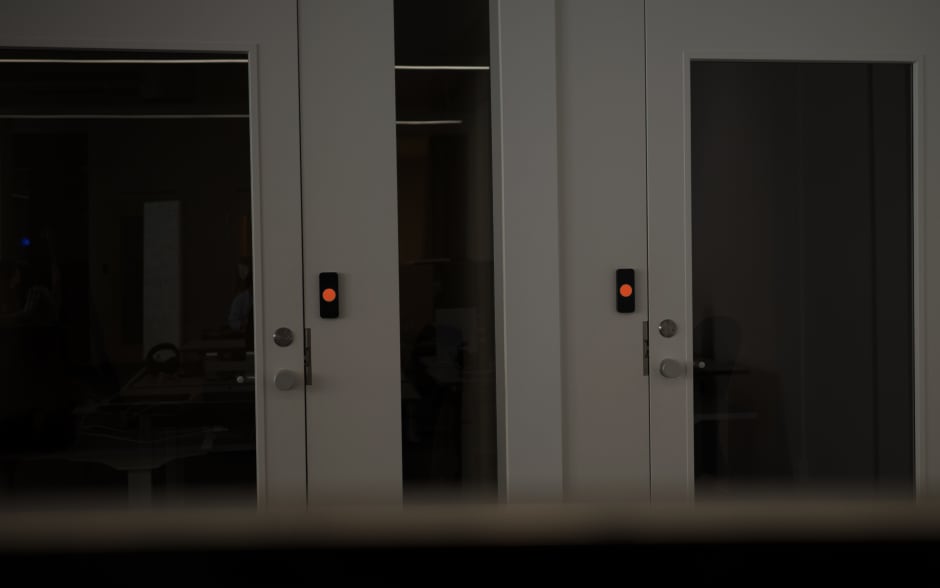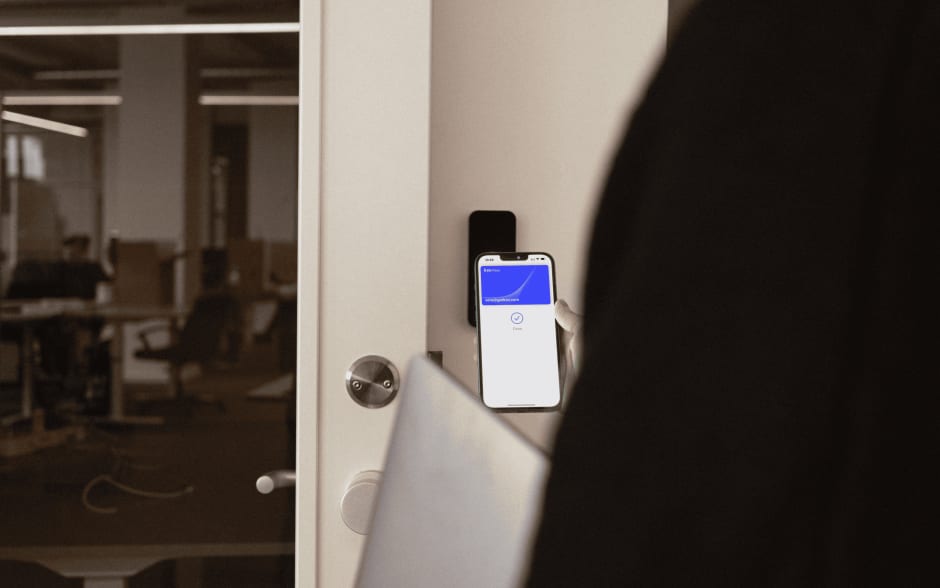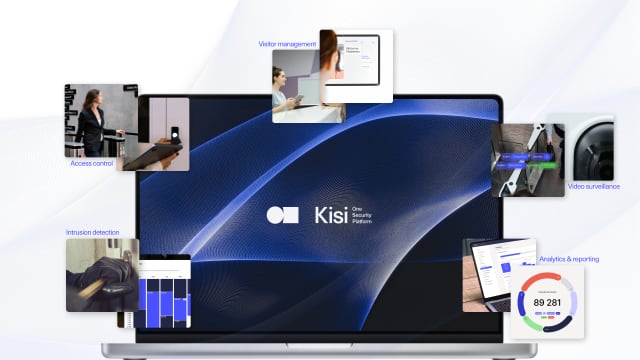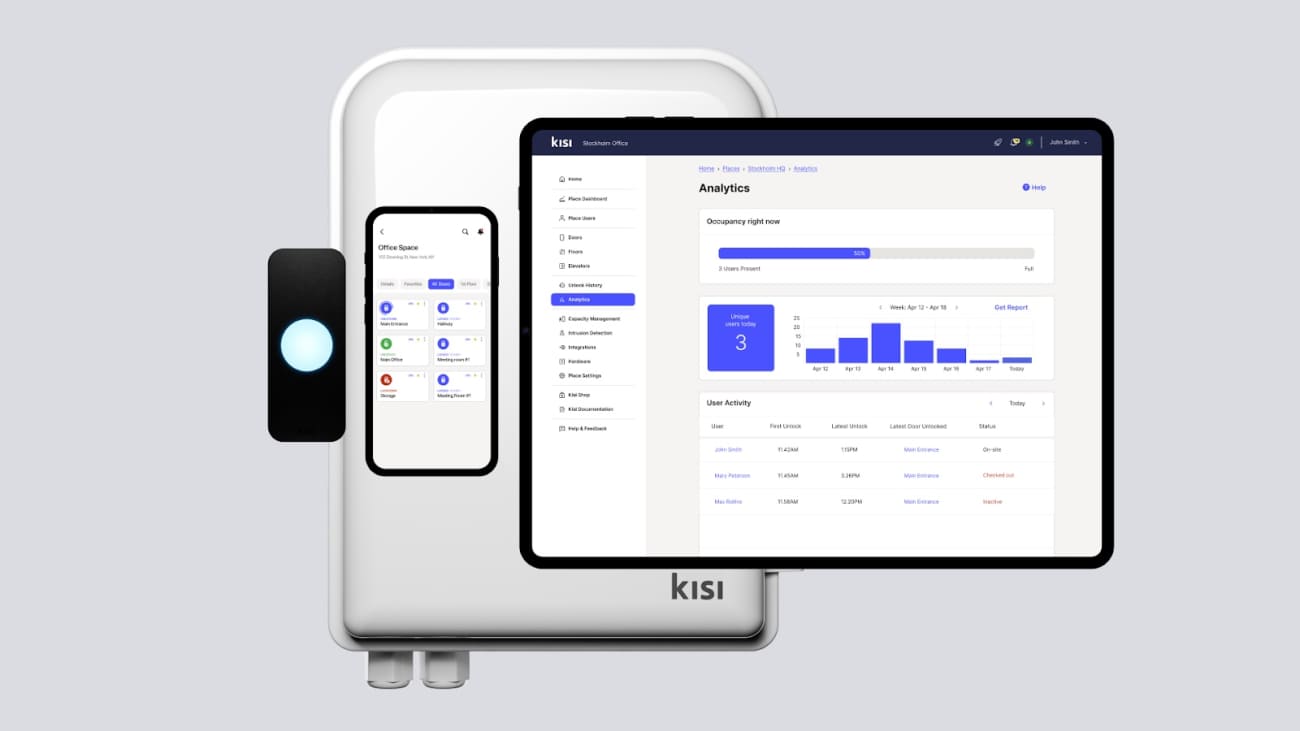Many people assume that enterprise organizations with large customer bases and substantial resources always have top-notch security in place. While that’s often the case, some organizations rely on outdated or insufficient systems that don’t fully address all the threats they face. Shifting to a more integrated system with modern enterprise security solutions can dramatically lower an organization’s risk level, streamline operations, and enhance user experience.
In this article, you’ll learn why enterprise security systems are so important, what benefits they offer, and what difficulties you might encounter when trying to implement them. We’ll also break down the factors you should consider before choosing a solution for your enterprise.

What are enterprise security solutions? #
Enterprise security solutions are critical components of enterprise security systems, sometimes called corporate security. In addition to technologies, these systems encompass the strategies and processes that large organizations use to protect themselves from internal and external threats. Enterprise security solutions should help ensure the safety of a company’s people, including employees and guests, as well as assets, information, and operations.
Enterprise security solutions often include both physical and digital security measures and technologies because a vulnerability in one area can have effects in the other. For instance, a lack of enterprise-grade access control could lead to unauthorized individuals entering a business and installing malware on a company computer, ultimately resulting in a data breach.
With that in mind, these are common elements of enterprise security systems:
- Access control, including gates, turnstiles, and doors, electronic locks, credentials, and readers
- Video surveillance, including cameras and software
- Alarm systems, including security, smoke, and fire alarms
- Lighting systems, including external and interior lighting with motion activation
- Cybersecurity solutions, including firewalls and antivirus software
When businesses implement an enterprise security solution, they generally also develop training, policies, and guidelines for their employees. This helps them get the best performance and results from their systems. For example, enterprise organizations typically have policies related to user authentication and identity management, like integrating SSO and SCIM and requiring employees to use multi-factor authentication to achieve a more advanced level of security.

Why large organizations need comprehensive security #
Enterprise organizations need security systems that protect against natural, human, and cyber threats. They’re popular targets for criminal activity because they often handle significant amounts of money and extensive personal data.
Common threats to enterprise organizations #
The escalation of cyber-crime and growing number of natural disasters have made the corporate landscape more high-risk than ever. Failing to implement an effective security solution leaves organizations vulnerable to a variety of threats, such as:
- Theft
- Vandalism
- Trespassing
- Tailgating
- Workplace violence
- Ransomware
- Hacking
- Malicious file manipulation or deletion
- Natural disasters like tornadoes and earthquakes
- Fires
These kinds of events can have major impacts on a business’s finances and reputation, potentially affecting its long-term viability.

Addressing risks with enterprise security #
The goal of installing an enterprise-level security system is to mitigate the risks organizations face and safeguard their interests. In addition, security systems are vital to shielding customers and partners from potential harm. A data breach in an enterprise organization could expose private information for hundreds of thousands of individuals, who are then at risk of identity theft and fraud.
These measures are especially important in an era when threats are increasing and many employees fail to follow security practices. A 2023 report by Gartner revealed that 69% of employees surveyed had bypassed their organization’s cybersecurity guidance in the past year, and 74% said they would be willing to ignore cybersecurity guidance if it helped them achieve a business objective. In these instances, a strong enterprise security strategy is the only thing standing between the organization and a potential disaster.
To combat these issues, organizations need solid cybersecurity protections and a physical security platform that integrates the different security elements, including access control and video surveillance. These types of systems deter employees from disregarding security policies. For example, an access control system can use sensors to detect if an employee holds a door open for too long to allow someone else to enter. The system can then alert organization leadership, helping to prevent an event that could lead or contribute to a physical or cyberattack.
Benefits and challenges of implementing enterprise security systems #
Enterprise companies have a lot at stake, so making an informed decision about your security system is essential. When deciding what changes or improvements to make, the first step is to consider what a security system will add to your organization and what issues might prevent you from implementing it.
Obstacles #
While enterprise security solutions serve a crucial purpose, they also come with challenges. These difficulties can sometimes make organizations hesitant to replace or upgrade their existing systems.
One of the first hurdles to overcome is finding a solution that will integrate with the other systems and components in your organization. Connecting different aspects, such as access control, video surveillance, and visitor management, makes your security more cohesive and simpler to manage.
What’s more important is finding a system that can enable a smooth transition to the cloud, enable you to migrate at your own pace, and let you keep the necessary parts of your legacy system.
Another point of concern is managing and configuring the system so that it works properly, which is especially difficult if it’s not cloud-based, open, and interoperable. On-premise enterprise security solutions are often complex, requiring regular monitoring, testing, and maintenance to ensure they remain in good working order.
Finally, some businesses struggle with keeping employees up-to-date and fully trained in using their systems. Changing from outdated technologies to modern solutions might require the organization to create and administer new training programs, which can be time-consuming if the solution is not intuitive and user-friendly.

Advantages #
Modern enterprise security solutions have wide-ranging benefits for organizations across virtually every industry. Whether you operate a tech company or a manufacturing facility, these are some of the biggest upsides to having up-to-date enterprise security:
- Compliance: A security solution helps you maintain compliance with both internal and regulatory requirements. In particular, it supports your efforts to safely store customer and employee information.
- Reduced operational overhead: Automating most of the security process, including access control, streamlines operations and enables you to manage more with less resources. For instance, you can cut down on the hours spent manually granting access, issuing and de-issuing credentials, and checking in visitors.
- Trust: Implementing a comprehensive security system demonstrates that you value the safety and wellbeing of everyone who interacts with your business. This fosters greater trust with employees, customers, and partners.
- Fewer financial losses: A security system can minimize expenses on a number of fronts. For example, it can help reduce on-site security staffing requirements, prevent assets from being stolen or damaged, and decrease the risk of costly regulatory penalties and lawsuits.
- Data security: Enterprise businesses often collect, transmit, and store highly sensitive data. A security system creates a layer of protection that prevents unauthorized access or misuse of that confidential information.
- Business continuity: Security also supports more resilient business continuity and limits downtime. Organizations experience fewer disruptions that can affect productivity and revenue.
- Improved perception and experience: Enterprises can bolster their status as modern companies with seamless security experience for employees and guests. Enabling users to unlock doors with badges in Apple Wallet or a hand wave, for instance, can influence the overall perception and reduce employee anxiety about lost or forgotten credentials.
Keep in mind that you’ll only experience these benefits if you implement strong, reliable enterprise security solutions that align with your business goals and needs. That’s why it’s so important to think carefully about what solution is right for your organization.

How to choose the right enterprise security solutions #
Making changes to your security system can be an overwhelming prospect — especially if you have legacy systems that have been in place for years. Even if you’ve grown accustomed to a system already that has worked relatively well for your organization, there are likely opportunities for improvement.
When the time comes to enhance your enterprise security, you’ll need to narrow down your options from a crowded field of providers. These are some of the key points to research before you commit to a solution:
- Ease of use: An enterprise security system should alleviate worries, not add to them. Before investing in a solution, consider requesting a demo so you can explore it in detail and decide whether the mechanics are a good fit for your team’s level of technical expertise.
- Integration: Investigate whether a particular solution is flexible enough to integrate with your other systems, including any legacy technologies that you’re hoping to keep. If the solution doesn’t offer a native integration, explore whether it’s possible to create a custom integration and how that process might affect your timeline and budget.
- Scalability: Enterprise companies are already large, but many of them expect to grow further in the future. Look for a centralized, cloud-based enterprise security solution that makes it easy to scale your system, allowing you to manage additional users, devices, and locations from a single pane of glass.
- Regulatory compliance: Research whether a solution will support your efforts to comply with the requirements and standards for your industry. This is especially vital in areas like healthcare and financial services, which have stringent regulatory requirements when it comes to protecting sensitive data.
- Compatibility with legacy systems: If you hope to keep any or all of your existing hardware or software, investigate whether a new solution will fit seamlessly into the system. For example, Kisi has multiple deployment and migration options that allow you to keep your legacy system while also moving your access control to the cloud.
- Reviews: Look at online reviews or reach out to other enterprise organizations that have effective security systems to ask for referrals. Specifically, look for solutions that are known for strong performance and responsive customer support.
In the end, your goal is to find a solution that boasts strong performance, constantly updates and improves the functionalities, has a straightforward user experience, and a good balance of flexibility and reliability.

Kisi’s role in the continuing evolution of enterprise security #
Enterprise security is a growing field, particularly as technological advances create new methods for securing physical and digital spaces. In the coming decades, you can expect to see a growing number of solutions that incorporate biometrics, touchless controls, and advanced analytics. Some solutions may also have the capability of using AI to predict when security incidents might occur, empowering your organization to become more proactive and stop disasters before they begin.
Through all of these changes, Kisi is here to support you. Our One Security Platform can integrate with legacy hardware and existing enterprise application ecosystems to create a unified solution that protects your enterprise company from every angle. We’ve taken a future-proof approach to enterprise access control that can handle growth and changes down the line. Reach out to schedule a demo and learn more about Kisi’s solutions and how they can play an integral role in your enterprise security system.






